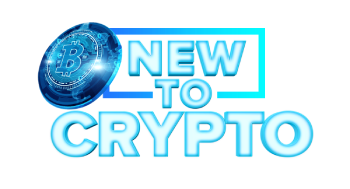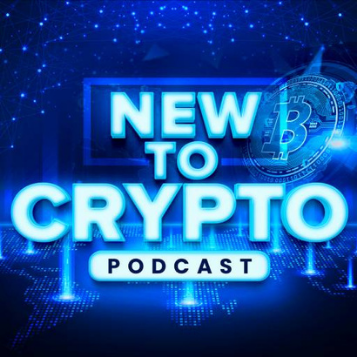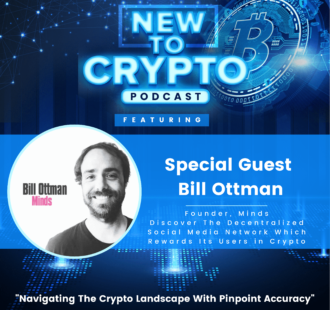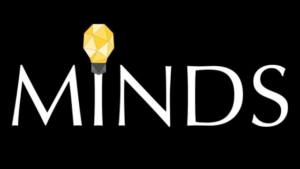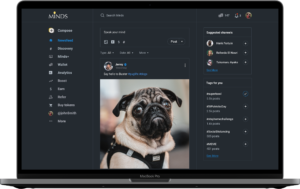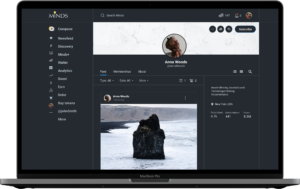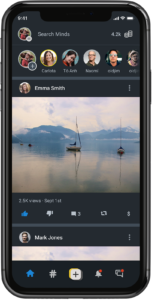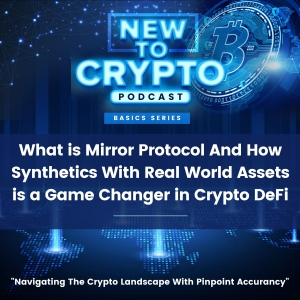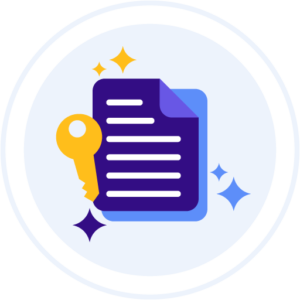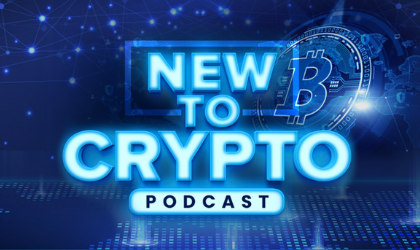Discover The Decentralized Social Media Network Which Rewards Its Users in Crypto With Bill Ottman Founder of Minds
SUMMARY KEYWORDS
Minds.com, crypto, token, minds, decentralized, people, privacy, mines, rewards, social network, content, community, users, web, ETH, wallet, listeners, app, network, earn,
SPEAKERS
Bill Ottman, Crypto Travels Michael
00:00
Today’s episode is about an awesome decentralized social media network that involves crypto. Yes, that’s right. Did you know that mines.com already has 5 million users? Stay tuned to discover how mines are different from other social media platforms and how their own crypto token called the minds token is rewarding users for sharing content on the platform. This one today is an eye opener and definitely not one to miss.
00:28
Welcome to the New To Crypto Podcast designed to guide you through the crypto landscape with pinpoint accuracy created for the new and intermediate crypto investor. Join your host Crypto Travels Michael as he takes you through the different facets of getting started and succeeding in your crypto journey. New To Crypto Podcast brings you new episodes daily Monday through Friday with surprise bonus episodes sometimes on the weekend. Let me ask you, Are you new to crypto and don’t know where to start? Are you more experienced but have questions? Then you’re in the right place. This podcast is designed for you coming at you from the trading center in the lifestyle design studio. Here’s your host Crypto Travels Michael.
01:21
Brave wallet is the first secure crypto wallet built natively in a web three crypto browser, no extension required. You can store, manage and grow your portfolio, get NFT’s and multi chain support, download the brave privacy browser brave.com/newtocrypto and click on the wallet icon to get started. And welcome to the podcast. I’m excited about today’s episode. I have a very special guest on the show, the co-founder and CEO of Mines. I have Bill Ottman on the show. And he’s the CEO of Mines, a crypto social network. Bill, man. Thanks for coming out. Thanks for joining us today. Psyched to be here. Thanks for having me. Hey, it’s anytime you’re welcome to come anytime. Before we jump into everything. Can you tell our listeners a little bit about yourself? Yeah, sure. Let’s see. I mean, I’ve pretty much been building minds for the last decade. You know, before that I, you know, I studied up in UVM organized music festivals. I’ve always been really fascinated in crowds, the power of crowds, community centric projects. And I think that, you know, crypto is amazing, because it sort of combines both worlds, it brings together the internet with the crowd, it’s sort of like this crowd owned crowd power infrastructure, powered infrastructure. And it’s just a fair system without a lot of the corruptions of traditional systems. And so, you know, I used to be much more heavily involved with live events and social networking, like in the physical sense. And now, you know, I’ve sort of gone digital, we do want to facilitate real world connection, for sure. But I think that it’s just sort of inevitable, that, you know, digital is just as important a part of the equation. Okay, so thank you for sharing that little intro. In a nutshell. You know, I’m sure listeners will be asking themselves, what is minds? Yeah, so We’re a crypto social networking app. I mean, the app feels similar to other social apps that you use, Twitter, Facebook, YouTube, Instagram, however, we basically invert the model. So the UX is quite similar. The difference being that you have a wallet associated with your account, you’re earning crypto for all of your contributions, we harness Ethereum and minds token is on the Ethereum network, we reward tokens for contributions of content for providing liquidity, and the token is pegged to views. So you can actually use the token to boost your content. One token right now is worth 1000 views. So when you earn the tokens, you can boost your content. And we’re very focused on helping creators earn and get more reach because the algorithms on big tech have pretty much gone out of control. You don’t know why you’re not reaching your whole audience. No one really knows what’s going on in the newsfeed or you know why certain things are getting promoted, certain things are getting shadow banned. So we’re very much focused on privacy. We are messengers and 10 encrypted, we don’t even want an access to people’s personal information, personal conversations. It’s pretty crazy that you know, we accept the fact that Facebook and Twitter and Google are just scanning everybody’s conversations targeting ads, and so, you know, privacy, transparency, everything we do is fully open source. None of big tech is open source, you know that transparency is a really core tenet of crypto, and just, you know, digital rights in general. And then on top of that, there’s Yeah, the whole monetization element. And I think that, you know, at the end of the day, people are getting exploited on big tech. I’m not saying that there’s no value in any big tech, I think that they’ve obviously, you know, created some really great products, but they’re also terrifying. So we need to make sure that we’re building up more ethical alternatives that are actually powered by the community and have the users coming first. Hmm. Interesting. So based on you just touched on privacy just for a moment. So I want to segue into why is privacy important? And how does mines help solve this? Yeah, I mean, I think that privacy should be the default, just because you just never know. And it’s not that you have anything to hide, necessarily. Snowden has a great quote, quote, you know, just because, you know, you still want freedom of speech, even if you don’t have anything that you necessarily want to say. And you should still want privacy, even if you don’t have anything to hide. These are just fundamental rights that we know throughout history are really essential for human liberty. So you know, I think that there’s plenty of places to not be a private beep, I mean, look, what we’re doing right now we’re broadcasting a conversation, like, you know, our lives are inevitably becoming more transparent. But I still think that we need to keep everyone safe in terms of, you know, hackers, just people looking, no one, no one should have to justify the right to privacy. And the, when you create a backdoor into through encryption, you know, if the NSA, for instance, is advocating this, what what they don’t realize or in what many of them do realize is that you create a backdoor to one device, you’re creating a backdoor into your own device, the NSA is actually making itself less secure by compromising encryption, when you start making backdoors. You know, even though it could be argued, hey, we need to protect national security by spying on all these people. So we can catch terrorists, you could turn that argument around say, no, no, no, we need to protect national security by making sure that our devices cannot get compromised by you know, the backdoors that we created. Mm hmm. Okay. Interesting. I definitely agree with you that privacy is an inherent human right. And nobody should have to justify why they want to have privacy. And to be honest, a lot of people, everyone I know in crypto, privacy and sovereignty are, you know, important and freedom is important to them. And maybe that’s one of those things that navigate some of us to crypto. You mentioned the minds token. And I wanted to ask you, can you share with our listeners like a little bit more about it, you know, why did you create a token for the project? And how, you know, just unpack a little bit more about how they can earn crypto meaning our listeners, and how do you know how that works? So sort of a two fold question. Yeah, sure. So yeah, no, I think it’s an important question, because I don’t think that you necessarily need a token for everything. And I think that there are a lot of useless tokens. You know, that being said, when you’re a part of a community, social network, for instance, and you’re contributing value, it’s very useful to have a token to quantify that value that the users brought to the network, and to be able to create sort of a micro economy and create a token and reward those tokens. And then those tokens can be used to access, you know, basically eyeballs on the network. That to me is sort of a really elegant loop. Now, we also do rev shares with cash, we have minds plus, which is a product to access premium content, and, but we take 25% of the minds plus revenue and actually proportionally share it with the creators who post content in two minds plus, so for us, it’s all about just sharing our resources with the community who is helping us exist. So we share the token and that gives you literally like ownership of our ad space, like you know, in big tech land, Facebook, you know, it’s all a surveillance machine and they’re using the ad space against you. We’re literally giving the ad space, the promotional real estate, to the community who is helping us exist. Now. It says you know, why not use Bitcoin or ETH in Instead of creating your own token. Well, I’m actually all for rewarding Bitcoin and ETH for different purposes, but for the like, it wouldn’t make sense for us to just drain our treasury of Bitcoin. And just, I mean, for the purpose of the types of rewards that we’re doing on a daily basis, just because, you know, the value is getting generated. And it’s just nice to have an asset that sort of was generated alongside that. And, you know, I will say, like, people do try to, you know, farm our tokens, like you have like the sort of inauthentic activity, and, like, there are groups from, you know, Nigeria and Turkey, and they’ll start these rings, and they’ll, you know, vote on each other stuff, because they can earn tokens. And, you know, we finally, we have some really great tools to prevent that. So that, that they’re no longer getting rewarded. But the point being, we wouldn’t want Bitcoin and Aetherium to be going to those people like civil resistance is really important. And, you know, so arguably, you would even force people who are earning to put up some assets to stake so that if they misbehave, then they’re actually going to lose that staked asset. It because, you know, you should have to put up something, arguably, we’re not doing this yet. But I think, you know, generally speaking, like, you know, even look at ETH model, like people don’t necessarily spam Ethereum because the cost benefit isn’t really there, you’d have to pay these gas fees, you know, and then additionally, for the liquidity rewards that we do, if you stick into the minds, ETH, pair and uniswap, we are giving you free advertising proportional to your share of the liquidity pool. So there’s actually this featured ad spot on the top of the news feed on Mines calm. And so if you have 1% of the minds ETH pool, your page is going to rotate in that slot 1% of the time, and that’s all free on top of the liquidity rewards. And because we believe that the community, people who are helping the ecosystem, deserve to be rewarded for that participation. Oh, that’s awesome. That’s, that’s man, I actually really like that. That’s the fact that you’re rewarding. Your users, you know, contributing is an awesome thing. By the way, a little side note, this shows actually been number one in Nigeria on Apple, period, Nigeria has a youth community that’s huge into crypto. And this shows currently in the top 10, on Apple in tech in Nigeria. So let me Speak to the Nigerian Nigerian listener, I want to because I want to say, you know, we love all the Nigerian users. And I know that there are, you know, it does not speak to the majority of Nigerians on minds, who are doing this kind of thing with, you know, vote for vote, kind of, you know, little token rings, and we’re doing everything we can to solve this issue. It’s not just Nigeria, I mean, there’s people in every country kind of all over the world trying to do this. And I think it’s actually amazing what’s happening in Nigeria, in terms of crypto, I think it’s one of the most rapidly emerging markets on the planet. Yeah, it’s an explosion. They love crypto in Nigeria. So let me ask you, you mentioned minds plus, so submitting content to minds plus, and earning a share of revenue. Where did you and your team come up with this concept? Because I think it’s awesome. And it makes me want to use it over any other platform, you know? Yeah. I mean, you know, we need a sustainable business model. And, you know, when using your social network, you sort of look at what are the options out there. I mean, we’re not against advertising, but we’re certainly not going to spy on our users. And in order to maximize revenue, we don’t want to be reliant on advertising revenue for our business, we want to you know, and I think membership models are much more sustainable long term. So, you know, ultimately, you know, our users actually also have the ability to set up membership tiers similar to, you know, Patreon, and like, I think, super follows on Twitter, and, you know, memberships on YouTube. So we do have that ability, but what mines plus is, is really, like, you know, not everybody has a big audience, a lot of people just have a small audience, but there might be a really interesting creator, and they want to tap into a revenue pool. So mines plus you know, we have 1000s of members of minds plus, so what that enables is someone who’s not even a big creator, to just pop in, and if they post some really popular content into that exclusive feed, you know, they’re gonna see some rev share. And they’re because we’re taking a share of our company’s revenue and sharing it with everyone you know, regardless of how big your audiences so, you know, individual memberships for creators, like you know, I mean, I’m sure that you know about this, you’re Starting a media company and you know, you know, building up a big following on your own is not easy. And so you know, giving people an entrance point for that to access a rev share has been super successful people love it. And I think that the one analogy I make is, imagine if Netflix let people let you upload a film. And if at the end of the month that film performed well, on Netflix, they gave you a cut. I mean, that said, like, I think Netflix should do that for I actually want other companies to pick up on this model, because a lot of companies have like an exclusive content membership, where you just you’re paying to get content, like I mean, that’s what Netflix is, or, you know, there’s tons of projects that do that. But then let those same subscribers contribute, and potentially have upside as well. It’s just a little bit more of a creative and I think beneficial program for the members. Thanks for saying, No, I really liked what you know, the way you’ve laid it out, and, and the whole give back and reward. Let’s talk about the token, token economics. I’m in the, you know, I’ve seen in your white paper, the total supply, you did a little rebasing there, the picture about all that. Yeah, so 250 million Max supply, we ran the finish minting function. So no, no more tokens can never be created. And, you know, only like I think less than 10% have actually been awarded so far. And so you know, those are sort of on a schedule, about 10,000, total 10,000 tokens a day are rewarded to the community in three different buckets, half are going to the liquidity providers. So 5000 tokens today are getting distributed proportionally among the people in the minds Eth liquidity pool 10% are just going to holders, and the 40% are going for engagement rewards. And that’s for like up votes on your content and whatnot. So that’s the emission rate. Okay, and can these tokens only be earned? Or can they be purchased? Is it on swabs or on exchanges? Like if they’re on uniswap, we have an integration directly with uniswap. So that we have a back end integration so that we can track people’s positions in that pool. And we don’t pursue centralized exchanges. We’re much more kind of pro decentralized tools. Sure. No, I can definitely appreciate that. Yeah. You’re providing web three experience and you offer what Fiat to crypto onramp? Is that? Yeah, we have an integration with trend, Zack, which is on I think, you know, Metamask also uses transacting for some of their Fiat on ramps. And yeah, like, so I think, yeah, you can get mine tokens from them as well. But they’re like a, you know, a money services business. So like they can, they can handle that. Awesome. And tell us a little bit about the roadmap and what you have coming with mine here in 2022. Yeah, I mean, we’re doing a lot of layer two stuff right now. So we have integrations with both polygon and scale that are getting built out. And we’re going to be doing more, I would imagine, probably arbitrage them and maybe some others for cheaper transaction fees. Definitely working on decentralized identity, and decentralized content storage more. We do have an integration with our wav right now, which is a decentralized content storage system. And that’s an excellent project. We are also working on more of a federated, decentralized infrastructure generally, so that, you know, different nodes of minds can talk to each other. And actually minds would also be able to talk with federated social networks like Mastodon Pleroma, and others in the activity pub network. Additionally, you know, interoperating, with other web three social networks, and so definitely working on a lot of the web three UX, improving that, also expanding the utility of the token, increasing the ability to promote your content with the token potentially across other networks. And it’s constant. You know, the thing is, social networks are such beastly applications. I could just go down a list for hours like, video, you know, everyone really wants us to do live streaming people want, you know, improvements on we actually have two apps, we have minds. And then we have Minds chat. And so minds chat. It’s kind of our companion app similar to Facebook and messenger. And we’re actually using the matrix protocol for mine chat, which is entitled encrypted, decentralized messenger system. So you actually can talk to other nodes through my chat now. And then more wallet functionality probably supporting more assets in our tipping functionality for creators continuing to evolve the rewards improving the rewards. I don’t know, I’m curious for you, what is it that is sort of like top on your list that you would want to see in a new social network? Brave wallet is the first secure crypto wallet built natively in a web three crypto browser. What’s web three, web three is freedom from big tech and Wall Street, more controlling better privacy. But there’s a weak point in web three, your crypto wallet. Most wallets are browser extensions, a web two technology. That means the same old risks, app spoofing, phishing, scams and theft. Brave wallet is different. Brave wallet is the first secure wallet built natively in a web three crypto browser, no extension required. With brave wallet, you can buy store, send and swap assets, manage NFT’s even connect other wallets and daps. All from the security of the best privacy browser on the market. Whether you’re new to crypto, or a seasoned pro, it’s time to ditch those risky extensions, it’s time to switch to brave wallet, download brave@brave.com forward slash new to crypto and click on the wallet icon to get started. I think you’re covering most of those areas. I mean, the fact that you’re rewarding your users. And the fact that you know, these these decentralized privacy, you know, not having big tech interfere with my user experience, you know, is those are all important things that I’m you know, that I’m that are important to me that I’m looking at. And let me ask you with, you mentioned what the data stores with are we’ve are you using? Are we’ve to you know, decentralize the data for mines or what is Yeah, so you can post so like when you make a post on minds, post an image or video or, you know, whatever it is, you can optionally like sort of silo, post it to the perma web, which is our wave. And it would also so we post our servers and art we’ve now in terms of all of the data like I sort of place us in more sort of like web 2.5. Like we have various, like fully decentralized tools. We have various centralized tools. We’re always trying to decentralize more, but like, I’m not going to disingenuously say that we’re like, fully decentralized, there is no social network that is fully decentralized. If they tell you that they are, they’re lying, because it’s not technically possible, yet, there’s that there’s just a lot of centralized choke points, it is our goal to get there eventually. And in terms of like, activity Pub is really interesting, because you can basically subscribe to people on other nodes. So you know, you could run your own instance of mines, for instance, you know, not everybody’s gonna want to do that. But some people some, like more, you know, networks and communities might want to run their own nit instance, I could actually subscribe to you, from my instance, on your instance, your posts would come over to me, it would be like if I could, if Twitter decided to support activity pub, I could actually subscribe to you on Twitter from mines. And you could subscribe to me from Twitter, and I’m on Mines. So the activity Pub is a federated social media protocol so that the content in the users can sort of live between networks. And it’s probably the best decentralized social networking functionality there is. But then, again, for this activity, pub is the spec. It’s a W three C spec, which is the protocol that Mastodon uses and a number of other social networking projects use it. But then we also have like IPFS, for instance. So we have started integration with ceramic, who is basically a mutable layer on top of IPFS. And it’s really interesting, like we do have a prototype going where because you know, anyone who doesn’t know IPFS is distributed content, distributed data system, interplanetary file system, and a lot of projects use them to like Princeton store, the art of an NFT will be stored on IPFS as opposed to a centralized place. So like the NFT will reference a link. Most NF T’s reference a link to the actual content itself. And oftentimes, that media will actually be referencing an IP DFS link or an archive link, because those are more decentralized systems, because it’s sort of against the point of NF T’s to have the NFT pointing to like Amazon s3, or some other centralized database. So you’re sort of like buying this asset that could just get removed in the you know, then the actual media associated with the NFT could just get taken down. A lot of people don’t realize that when they buy NF T’s like when you buy an NFT, you really need to be aware of where that media is hosted on the NFT. To be honest with you, I don’t think most people know that answer. Now, they think that when they buy the NFT, that, like, it’s 100% sure that like that content is never going to go away. But it’s possible that like, if you signed into an NFT marketplace, and you bought an NFT, that wasn’t hosted on a decentralized file system, and then you know, that centralized host went down, your media would not show up when you sign in to NFT marketplace, because it would just it would just go away. And this is part of the problem with like, there’s a lot of centralization that exists in the NFT world. I think that like we just saw with Twitter, actually, Twitter just rolled out the NFT avatar service and then opensea.io the API went down. So you know, none of the NFT avatars on Twitter were showing up. And it was sort of like a joke. Big and it was not, it was really not a good move. Like I don’t know why Twitter’s using opensea.io because open seas are quite centralized. They’re also not open source. So you know, these are all the kinds of dorky things that I think about day after day, because you know, it’s kind of looking under the hood of what’s really going on, on all of these different networks. So going down that rabbit hole now is a question on everyone’s mind . How can our listeners research to determine where their NFT media is hosted on whatever marketplace or platform they’re holding or acquiring their NFT’s from? You know, I think that when you look up the token, the reference should, should be there. And you know, depending on the marketplace, I’m sure that they have Doc’s about where they are hosting the media associated with the token. So I would just recommend, you know, this is not an uncommon question. So I would definitely look into the docs about the, you know, specific NFT marketplace that you’re on. And or just look at the token itself and look at the metadata on the token. And usually you’ll see like the Reference link, of where that token is actually pointing to. Okay. Okay, awesome. Moving back into minds, under Pro on, on your site about mind, it says you can build your own website, like with subdomain, Can you unpack that for because I know the listeners are gonna go to today’s episode Blog Post page, and they’re gonna, they’re gonna, you know, venture over to your site? And before they have the question in their mind, maybe we can address that. Yeah, sure. This is, you know, in all honesty, not something that we have been pushing super hard, just because it is a very new product. And it’s, it’s very much like in beta. But with Pro, you can, you know, get a subdomain. So most most, you know, regular users don’t get a subdomain, you can also do a custom domain and point to it. And we sort of have this much more customized front end that you can do on your mind channel. And it looks much more like a website. So like, you know, you won’t see our branding on the top of the page. And it feels like it’s more owned by the user. And the user has many more customization options. So if you’re looking to, you know, have more of an independent brand page, it’s an option, but it’s also very much a, you know, an early product. So I don’t think that, you know, to be honest, we’ve struggled with it a little bit as well, because, you know, ultimately, we’re really doing a lot of research around. I don’t know, I mean, you’re so where do you land on this, like in terms of your website, versus your social media channels? Do you find yourself caring about your own website? Do you want to be focusing on that? Are you much more focused on, you know, your social networks, or do you feel like it’s a combination of both? That’s a good question. I would say, It depends who you are and what your need is right for this show. The website, you know, WordPress, it’s WordPress. The website is incredibly important. depending on you know, for someone who doesn’t have a website or maybe doesn’t have a regular business, maybe social media, that’s actually a great question. And I actually am really interested in the fact that I can, you know, build my own site or subdomain on Mines? That’s why I asked the question. It’s, actually, it’s nice to know that the option is there, you know, and but I would say yes, it depends, you know who the person is and what their needs are. Yeah, I agree with you. I think it’s very contextual. The other benefit of pro is that we actually, we do also take a share of our pro revenue, and we actually reward pro pages just for pageviews that they refer to the site. So that’s like an extra monetization feature that you get with mines Pro on top of the more custom website, but I think that we’re sort of also realizing that, you know, websites are just a beastly product. And we might have been ripping off more than we could chew in terms of, you know, like, we’re not really trying to compete with WordPress, I think that WordPress does a good job in there fully open source. And so we’re kind of rethinking that aspect, I think the best feature of Pro is the is just getting paid for the page views that you’re generating. Okay. Well, in closing, you know, our you, our listeners are probably asking, like, how can they get started with mines? And I actually have a last question for you. Is Mines an app for phones only? Or can it be used on web browsers on your desktop? Or is it for both one or the other? It’s both. Yeah. So we’ve got mine Scott comm which is our web app, and am i n d s calm? And it’s also on the App Store’s both app stores, you can also download the app directly from us at minds.com/mobile. And, yeah, we definitely believe in both worlds. I think, you know, there’s plenty of benefit in both. Sometimes I wish we only focused on one because it would be much less to maintain. But at the same time, you know, to stay competitive. I think the reality is that, you know, most competitive social networks are both web and mobile. But then again, look at something like Snapchat, I mean, they’ve they’ve stuck, that they’ve stuck only with mobile. And that’s been really successful. Same with Tick, tock, and Instagram even has limited functionality on the web. So you know, those are huge decisions when you plan to support a new platform. We started at the web, and mobile came after so. But I think things are inevitably moving more towards mobile, everything is just more mobile, the better mobile UX you have, I think generally the more successful your app is going to be. So you know. Yeah, I mean, I think our mobile app has come a really long way. So I really encourage people to grab it. Awesome. Yeah. The listeners will definitely be checking in checking that out. Before we conclude here. Is there anything else that you want to share with minds or anything? You know?
32:53
Yeah, yeah, absolutely. Um, well, I should also mention, you know, in terms of the crypto stuff, we also support Bitcoin tipping and Ethereum tipping. So it’s not all just about the minds token. And I think, you know, also that the Fiat tipping, I think that, you know, we really think of ourselves as like a, an onboarding mechanism to educate people about crypto, without, you know, just sort of assuming that everybody is gonna know what Metamask is, like, off the bat, I think that the world really does need to get educated into this. And so we really tried to make it as easy as possible for people, you know, otherwise, the thing that we probably haven’t spoken enough about is kind of our approach, our approach to content. And we have a jury system for our moderation. So actually, if we make a decision that a community member disagrees with, they can actually appeal it. But the appeal doesn’t go to us. When pomp got banned from YouTube, he had to go talk to his buddy at YouTube to get him reinstated. And that was lucky that he had that ability. You know, we want our community to be able to appeal to the community. So if the community thinks we did something wrong, the community should decide, we need to engineer ourselves out of the positions of power. That’s ultimately our goal. So we want to maximize free speech. And we also want the community to kind of have that curating power of the network. So I think that this is one of the huge differentiators, you know, there’s so much crazy stuff going on these days, with so much getting banned. I mean, if Pomp is getting banned from YouTube, do you realize how insane that is? There’s nothing wrong with that. It’s just a business show. There’s nothing controversial about that. The fact that that’s controversial, should make everybody shake their boots, not to mention that all of the quotes are unquote, misinformation that they’re banning people for which later turned out to be true. Ultimately, big tech just doesn’t care about the users first. They care about themselves first. And so I just encourage everyone, check it out, you know, by With your bow with your attention on the Internet support, you know, crypto products, you know, not just minds, you know, browsers, all different apps, you know, just just experimenting playing around a little bit, you don’t have to jump ship entirely from big tech, but the way that this movement is really going to grow, just checking into the app once in a while, you can’t understand how much that impacts the success of these apps that are going to be building the future. So, you know, I know that we all get so busy, and it’s like, I can’t, you know, I don’t I don’t want to do another social network. I’m already using Facebook, Twitter and YouTube. But at the end of the day, those apps are all the same. They don’t care about you. And they are just not, you know, working in your best interest for your long term success. So I think that that’s just the beauty of crypto itself. And, you know, you earn the tokens on Mines, and like, we can’t take those away from you. You earned those. That’s a beautiful thing. We don’t want to have that ability.
36:00
Well said, well said, Bill, we thank you for coming out here and joining us for the episode. And I’m sure all the listeners are going to be checking out minds. And I know it’s a new concept for most of our listeners, you know, a crypto social media network. And yeah, we welcome you back on the show in the future and to all the success with Minds.
36:24
Thanks so much, Michael. Hopefully, we’ll get you. We’ll get you on there and we can follow up. And we’ll boost the hell out of this out of this episode and your other episodes. I would love to really get our community’s eyeballs on all your content. We can talk about that next time.
36:37
Absolutely. Michael is getting on it right away. So having them on into all of our listeners, we thank you for listening. If you like today’s episode, definitely like and subscribe to the podcast to show your support.
36:50
Thanks for tuning in to New To Crypto Podcast. If you liked the episode, be sure to follow and subscribe. You can listen to every episode on all major platforms. Have an interest in being on the show or want advertising reach out at newtocrypto.io. Head over to our site newtocrypto.io to access the resources mentioned in each episode. Until next time, remember to navigate the crypto landscape with pinpoint accuracy
